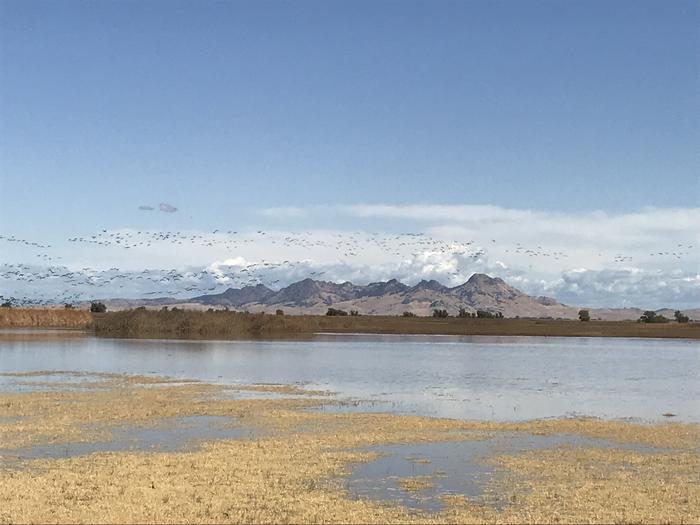A new publication from a team of scientists at USGS, Point Blue Conservation Science, and Conservation Biology Institute shows how knowledge coproduction – the collaborative creation of actionable information by scientists, resource managers, and policy makers – can help identify viable conservation options for a dynamic ecosystem with a complex web of stressors.

Credit: U.S. Fish and Wildlife Service (USFWS)
A new publication from a team of scientists at USGS, Point Blue Conservation Science, and Conservation Biology Institute shows how knowledge coproduction – the collaborative creation of actionable information by scientists, resource managers, and policy makers – can help identify viable conservation options for a dynamic ecosystem with a complex web of stressors.
The wetland habitats of California’s Central Valley support millions of migratory birds each year and are an important part of the Pacific Flyway, a bird migration route that spans from South America to the Arctic Circle. There are less than 10% of historical wetlands remaining.
In this region where water is highly managed to serve multiple uses, resource managers must plan the complex and carefully-timed movements of water onto the landscape to create seasonal wetlands and associated food, made possible in part by the cooperation of farmers in the region, in anticipation of the needs of the migrating birds. Now enter climate change, which is ushering in an era of more extremes, and we have what is known as a “wicked” problem.
In such a situation it can seem impossible to know which actions are worthwhile to take, leading to decision paralysis or wasted efforts. Cooperation based on a shared understanding of the options is critical, and achieving those requires communication, buy-in, and trust.
The Study
The authors of the publication “Knowledge coproduction on the impact of decisions for waterbird habitat in a changing climate” dove deep into this process, explored what worked and why, and explain the new knowledge created together with the stakeholders and how it guides the resource management process.
To bring climate change into the picture, the team used future narratives describing four highly divergent climate change-environmental management scenarios that wetland managers could likely face, converted them into computer models that envision what happens when different actions are taken under the different scenarios. The scenarios as well as the design of the models were coproduced with the stakeholders, making it a transparent process for them as well as offering the opportunity for a wide range of expertise to be incorporated. Representatives from the water management, planning, and conservation sectors were engaged throughout the four-year study, designed to investigate when and where management actions make a difference and when climate overrides these actions.
Results
The study showed that actions to restore wetlands and prioritize their water supply created habitat outcomes resilient to climate change impacts particularly in March, when habitat was most limited, and that land protection combined with management can increase the ecosystem’s resilience to climate change.
Uptake and use of this information was influenced by the roles of different stakeholders, rapidly changing water policies, discrepancies in decision-making time frames, and immediate crisis of extreme drought.
Journal
Conservation Biology
DOI
10.1111/cobi.14089
Method of Research
Computational simulation/modeling
Subject of Research
Animals
Article Title
Knowledge coproduction on the impact of decisions for waterbird habitat in a changing climate
Article Publication Date
15-Mar-2023
COI Statement
No conflict of interest.




